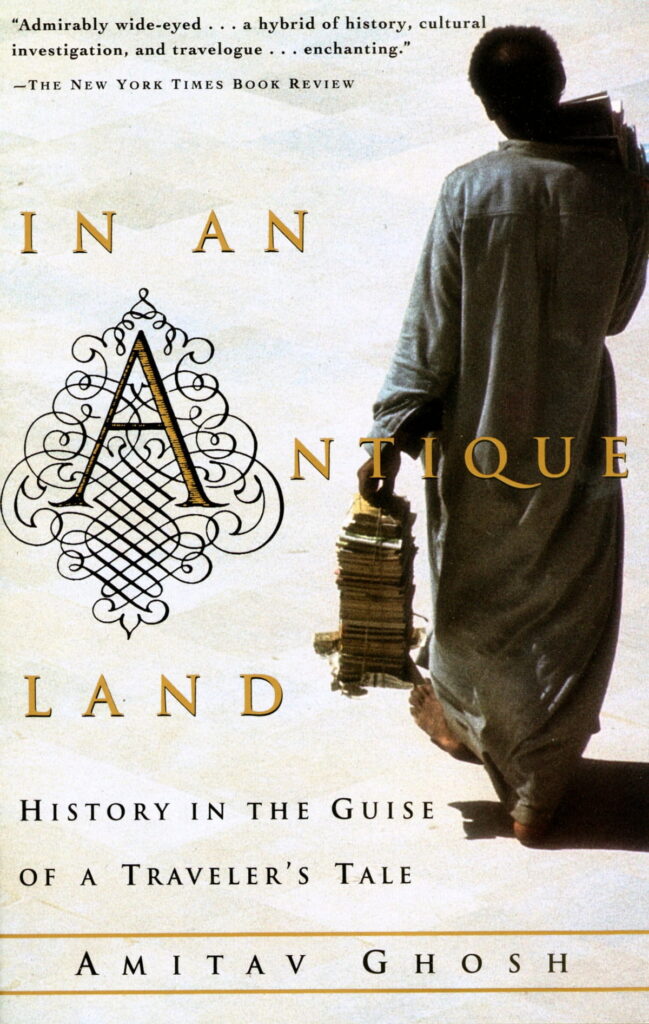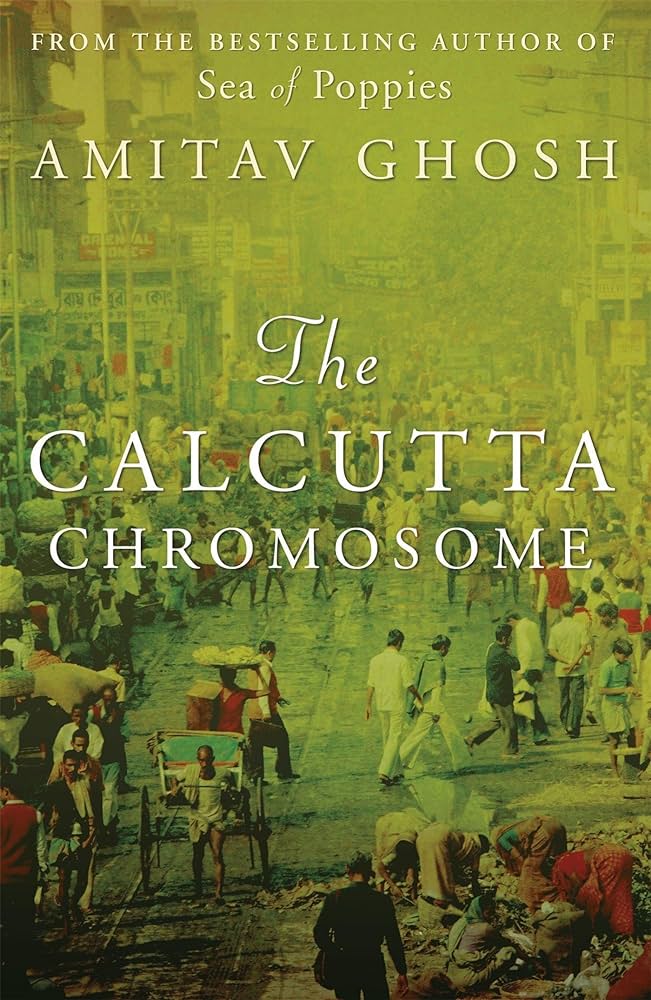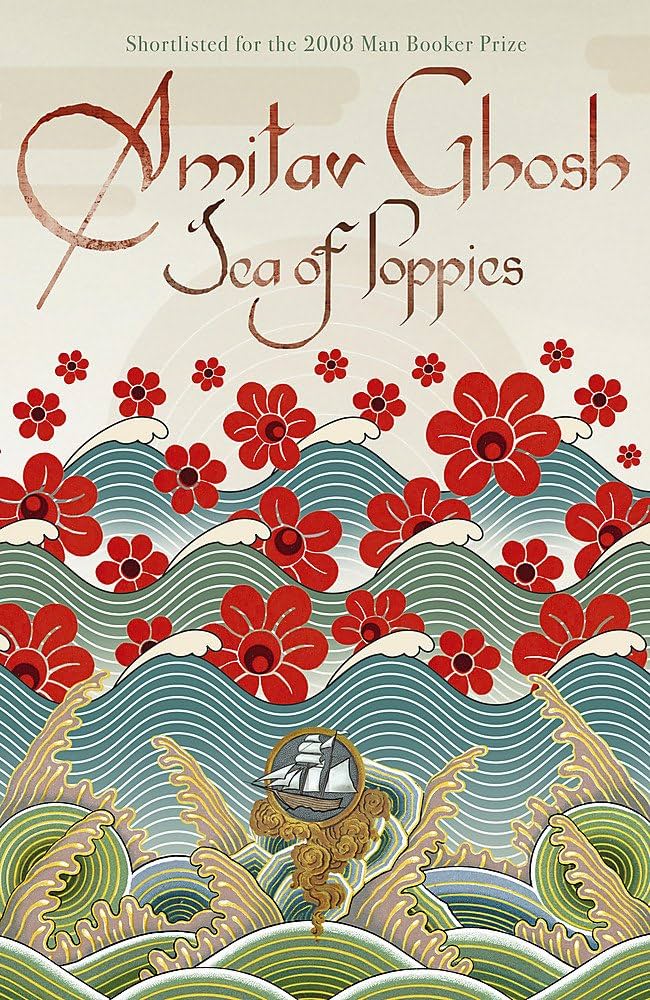Dive into the captivating world of the best works of Amitav Ghosh. Discover why his enchanting narratives and rich storytelling make him a must-read author.
Imagine a master navigator weaving tales of ancient Egypt with whispers of climate change, stitching together historical epics with threads of migration and displacement. Welcome to the literary world of Amitav Ghosh, where boundaries blur and narratives flow like tides across continents and centuries. Born in Calcutta in 1956, Ghosh’s childhood unfolded amidst the rich tapestry of India, Bangladesh, and Sri Lanka. This early exposure to diverse cultures instilled in him a global perspective, evident in his writings that defy categorization.
Ghosh’s early novels, like the acclaimed The Circle of Reason, established him as a master of intricate narratives exploring themes of identity, displacement, and the legacies of colonialism. His concerns extend beyond historical complexities to encompass the urgent realities of the present. Novels like The Hungry Tide and Flood of Fire position him as a leading voice in climate fiction, raising vital questions about environmental degradation and its impact on vulnerable communities. He crafts stunning landscapes, both real and imagined, that serve as mirrors reflecting the fragility of our planet and the consequences of our collective choices.
In this article, we’ll discuss the best works of Amitav Ghosh and why you should read them. Prepare to be swept away by the currents of his imagination and emerge richer for the journey.
Exploring the Literary Marvels of Amitav Ghosh: Why They Are a Must-Read
In an Antique Land

Amitav Ghosh’s In an Antique Land is a captivating blend of travelogue, historical fiction, and anthropological study, weaving together two narratives set centuries apart in the same Egyptian landscape. In the present, Ghosh is a young Indian graduate student in the early 1980s who arrives in the village of Lataifa to conduct research for his doctoral thesis. Intrigued by the discovery of letters from a 12th-century Jewish merchant named Abraham Ben Yiju, Ghosh sets out to reconstruct the life of Ben Yiju and his Indian slave, the latter known only as Bomma.
As Ghosh immerses himself in the rhythms of village life, he encounters a colourful cast of characters, from the stoic village elder Sheikh Hamza to the enigmatic storyteller Sayyid Hamid. Through their anecdotes and shared history, Ghosh uncovers the deep-rooted connections between Egypt and India, spanning centuries and blurring the lines between past and present. Ghosh’s narrative seamlessly interweaves his contemporary experiences with Ben Yiju’s reconstructed story. We learn of Ben Yiju’s rise from humble beginnings to his status as a prosperous merchant, navigating the intricate web of trade routes and cultural encounters that define the medieval Silk Road. His relationship with Bomma, initially one of master and slave, evolves into a complex partnership built on mutual respect and shared ambition.
Ghosh’s masterful storytelling vividly evokes the sights, sounds, and smells of both eras. He paints a captivating picture of 12th-century Alexandria, a bustling metropolis teeming with merchants, scholars, and religious pilgrims. In contrast, the quiet village of Lataifa in the 1980s offers a glimpse into the challenges and aspirations of contemporary Egyptian life. Through these parallel narratives, Ghosh explores themes of cultural exchange, identity, and the enduring power of storytelling. In an Antique Land is more than just a historical retelling or a travelogue. It is also a profound meditation on the interconnectedness of human experience, a testament to the enduring power of stories to bridge the gaps between cultures and generations.
The Calcutta Chromosome

In Ghosh’s third novel, The Calcutta Chromosome, the story unfolds across two timelines, effortlessly transporting the reader between a dystopian future and the vibrant past of colonial Calcutta. Antar, a data analyst for a powerful corporation in futuristic New York, stumbles upon a discarded ID card – a relic from his forgotten past. The name on the card, L. Murugan, awakens a buried memory, drawing him back to a haunting encounter in 1995 Calcutta. Murugan, Antar’s former colleague, was a man obsessed with the life of Nobel Prize-winning scientist Ronald Ross, who vanished mysteriously, leaving behind a cryptic trail of clues. Driven by a mix of curiosity and compulsion, Antar embarks on a quest to unravel the enigma of Murugan’s disappearance.
Ghosh then takes us back to 1995 Calcutta, immersing us in the city’s chaotic yet captivating atmosphere. Murugan, consumed by the scientific breakthroughs and hidden secrets surrounding Ross’s malaria research, embarks on his own investigation. He delves into the world of forgotten archives, marginalized histories, and local myths, uncovering a sinister truth about a controlled malaria experiment conducted by a shadowy organization manipulating destinies from behind the scenes. Across both timelines, Ghosh masterfully intertwines scientific and historical threads with elements of the fantastical. We encounter the titular “Calcutta Chromosome,” a mythical genetic marker supposedly holding the key to controlling mosquito-borne diseases.
The Calcutta Chromosome’s narrative is punctuated by fevered dreams, haunting prophecies, and the eerie presence of Malaria itself, personified as a malevolent entity orchestrating the events behind the scenes. Murugan’s path crosses with a diverse cast of characters: a streetwise Indian detective, a reclusive entomologist, and a group of marginalized Muslims harbouring ancient ecological knowledge. The novel challenges our perceptions of scientific progress, questioning the boundaries between knowledge and control and raising crucial questions about the cost of eradicating disease. Ghosh’s masterful use of language and his meticulous attention to detail bring both New York and Calcutta to life, immersing the reader in the sights, sounds, and smells of each era.
Also Read: https://highonbooks.co/a-literary-tour-through-paris-in-10-books/
Sea of Poppies

Amitav Ghosh’s Sea of Poppies embarks on a breathtaking journey across the Indian Ocean, weaving together a historical epic with tales of individual struggles and profound social commentary. Set in the early 19th century, just before the Opium Wars, the novel transports us to the sprawling poppy fields of the Ganges and aboard the Ibis, a decrepit ship bound for Mauritius. The novel transcends mere historical fiction, morphing into a poignant exploration of human resilience, colonialism’s shadow, and the transformative power of the sea.
The cast of characters is as diverse as the ocean itself. Deeti, a young widow fleeing poverty and despair, stows away on the Ibis, her innocence clashing with the harsh realities of indentured labour. Zachary Reid, a mulatto American sailor haunted by his past, seeks redemption. Neel Rattan Halder, a bankrupt Raja entangled in political machinations, clings to his fading power. And Benjamin Burnham, an evangelist opium trader, embodies the colonial ambition driving the voyage. As the Ibis sets sail, the disparate lives aboard intertwine, forming a microcosm of colonial India. Ghosh paints a vivid picture of the opium trade, its devastating impact on local communities, and the moral ambiguity it fosters.
The lush poppy fields of Bengal stand in stark contrast to the cramped, suffocating quarters of the ship, where dreams of a better life collide with brutal realities. Through storms and calms, the Ibis becomes a crucible of transformation. Ghosh’s storytelling weaves personal narratives with historical grandiosity. The Opium Wars and colonial machinations form the backdrop against which individual destinies unfold. We see the exploitation of labour, the erosion of traditions, and the dehumanization of entire populations. But Sea of Poppies is not just a lament for the past but also a testament to the enduring human spirit. The bond of shared hardship forged aboard the Ibis, the acts of defiance against injustice, and the quiet acts of kindness offer glimmers of hope and resistance. Sea of Poppies was shortlisted for the Man Booker Prize in 2008.
Why We Should Read Amitav Ghosh
Amitav Ghosh isn’t just an author; he’s a cartographer of human experience, weaving intricate tapestries of history, mythology, and contemporary social issues across captivating landscapes. Whether it’s the sun-drenched opium poppy fields of Bengal in the Sea of Poppies or the bustling medieval streets of Cairo in In an Antique Land, he transports you to different times and places with remarkable authenticity. Ghosh tackles global themes with unparalleled nuance. He seamlessly blends historical events with contemporary concerns, exploring issues like colonialism, climate change, and migration through the lens of personal stories. His books challenge us to think critically about the interconnectedness of our world and the lasting impact of historical forces.
Ghosh’s characters are not mere archetypes but living, breathing, complex individuals grappling with love, loss, ambition, and identity. His work combines historical fiction with fantastical elements, science fiction with travelogue, and social commentary with personal narratives. This genre-bending approach keeps the reader guessing, offering a fresh and invigorating reading experience. Beyond the immediate stories, Ghosh’s work raises questions that echo through time. He makes us ponder the ethical dilemmas of the past, the consequences of our present choices, and the potential for a more just and sustainable future. Reading Amitav Ghosh is an enriching, exhilarating journey. It’s a chance to lose yourself in vibrant landscapes, engage with timeless questions, and connect with unforgettable characters.

